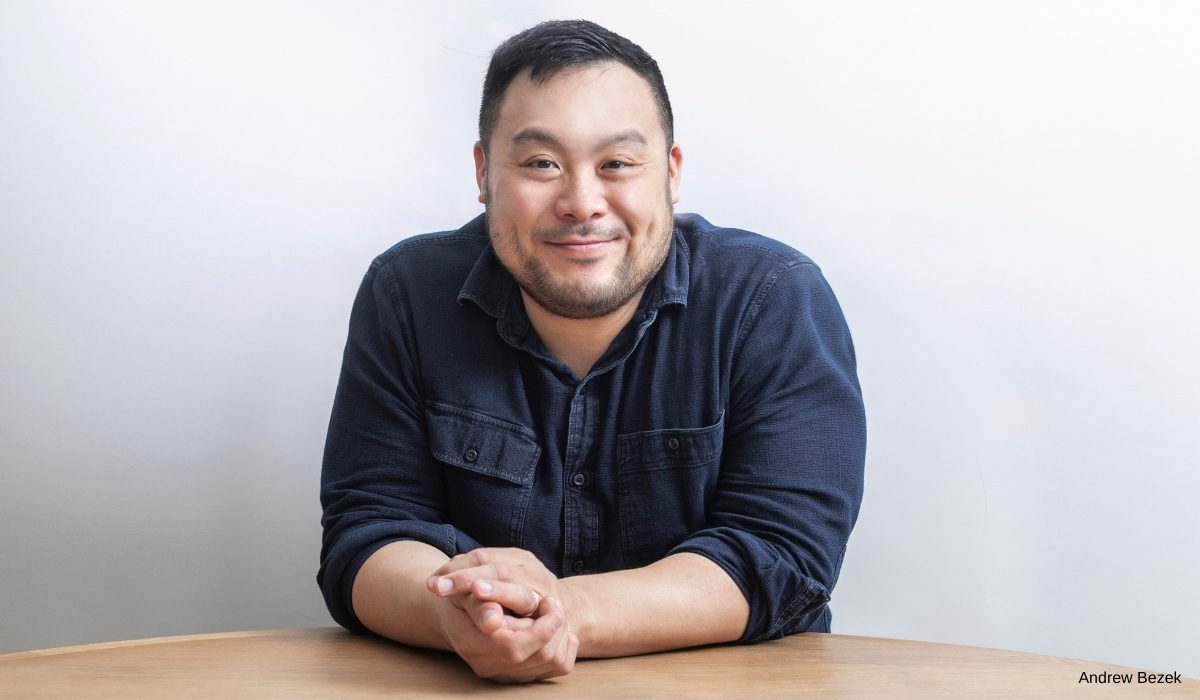David Chang on Mental Health, Fear of Failure, and His New Memoir

Best-known for his popular Momofuku restaurants, Chef David Chang is one of the most celebrated restauranteurs in the country. But his road to culinary success wasn’t without obstacles, as he details in his new memoir, “Eat a Peach.” In it, Chang provides a raw and candid exploration of his Korean immigrant upbringing, his struggles with mental health, and his journey to becoming who he is today.
An award-winning chef, best-selling cookbook author, and star of Netflix’s hit show, “Ugly Delicious,” Chang says the decision to write such a personal book wasn’t an easy one. We recently spoke to Chang about that decision, as well as his battle with depression, making peace with failure, and his hope for the future of a restaurant industry hit hard by a global pandemic.
1. Your new memoir is a deeply personal examination of the series of events that led you to the top of your profession. Why was now the right time to write a memoir and what was it like to write such a personal book?
To be honest, I originally didn’t believe this was the right time for a memoir. I always used to think that you should write one of these much later in life. I actually discuss that in the prologue: that I’d signed on to produce a book years before, and I couldn’t put it off any longer. I was very apprehensive. The funny, wild thing is that a number of significant events began to unfold around that time which forced me to take a closer look at my life.
Maybe it’s my natural disposition, but any time I put something personal out into the world, I think, well, that was a mistake. But over the last few years, I’ve pushed myself to defy that fear. I’ve come to realize that there is never really a right or wrong time for this kind of work: to some degree, you have to accept that you’re always going to shift perspectives when it comes to your past.
2. Before you found success, you say you failed at almost every endeavor in your life. What motivated you to keep striving early in your life and what motivates you today? Were there any lessons from your failures that helped propel you forward?
For the first two and a half decades of my life, I was a wallflower. I didn’t fit in with my Korean relatives and I didn’t quite click with my white friends. I can’t say I possessed any natural gifts. And, most of all, I didn’t recognize that I was deeply depressed.
After plenty of trial and error, I started to suspect that I could make something of myself in the kitchen, where hard work could compensate for my lack of talent. But the skies didn’t suddenly part. In fact, I got to a very morbid place; I decided to get some help from a psychiatrist. Through that work, I realized that there was something I wanted to get off my chest—a restaurant—but I had been too afraid. At the bleakest possible moment, when the depression was its most crippling, I actually gained some clarity: who cares if you fail if you’re going to die anyway? It sounds pretty silly, I know, but it was a tremendous motivator.
I decided to get busy living, and I learned that failure was not something to avoid. Once you make peace with the fact that failure is inevitable, it can open all sorts of doors—as long as you commit to carefully reflecting on each misstep. Frankly, I’d say that I’m the result of all of my failures, not necessarily my successes.
Now, though, I see things somewhat differently, maybe even more “maturely.” That’s because I need to and want to think outside myself: I want to do what I can to build a better world for my son Hugo to grow up in, and for those in my industry.
3. You’ve spoken openly about your mental health struggles and how cooking and sharing food gave you both purpose and agency in difficult times. What do you hope people will better understand about depression and other health issues after learning more about your experience?
The first thing I want to say is this: each person’s mental health journey is unique to them. Offering a blanket statement or a cure-all is not the solution, and I want to be careful not to make it seem that this is my intention.
But I do very much hope that this book can be part of the long but important de-stigmatization of mental health issues. It makes no sense that in some corners we continue to treat this as a taboo subject, when it’s really no different than any other ailment that requires care and treatment. I look forward to the day no one suffering from depression has to think twice about seeking help, like I did.
4. Much of the restaurant industry is facing an uncertain future amid a global pandemic. How will the industry need to adjust in order to survive and what’s your vision for its future?
I’m trying to imagine that it’s 2035 and telling myself, Build the restaurant you want to see then, now.
This essay was featured in the September 13, 2020 edition of The Sunday Paper. The Sunday Paper Inspires Hearts and Minds with News and Views that Rise Above the Noise. To get The Sunday Paper delivered to your inbox each Sunday morning for free, click here to subscribe.


